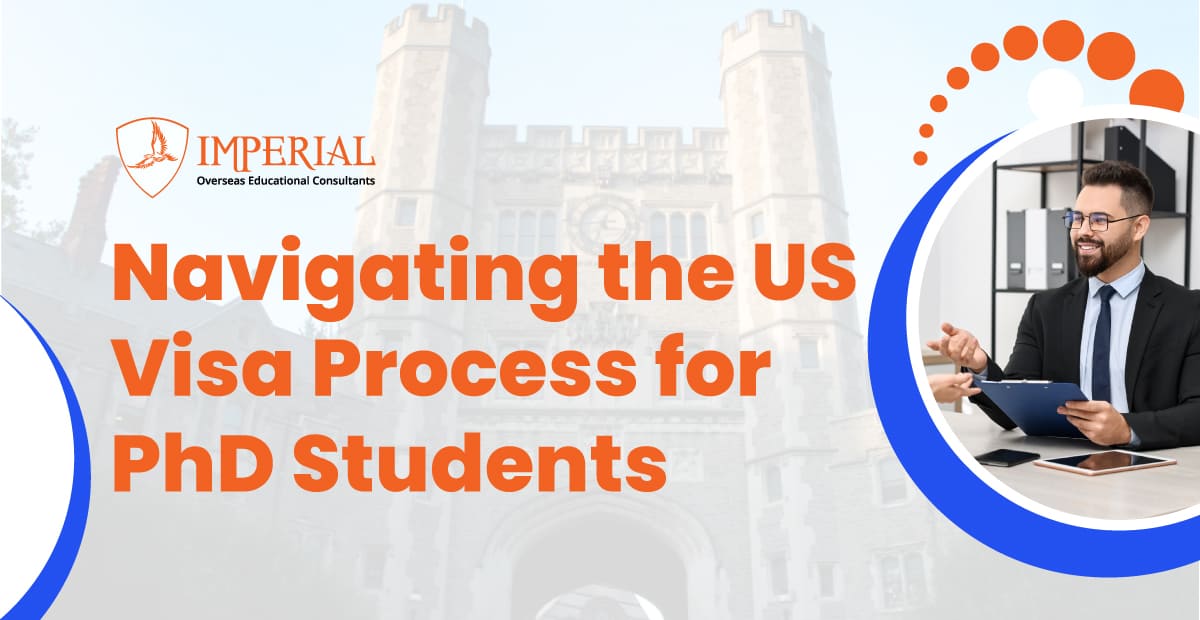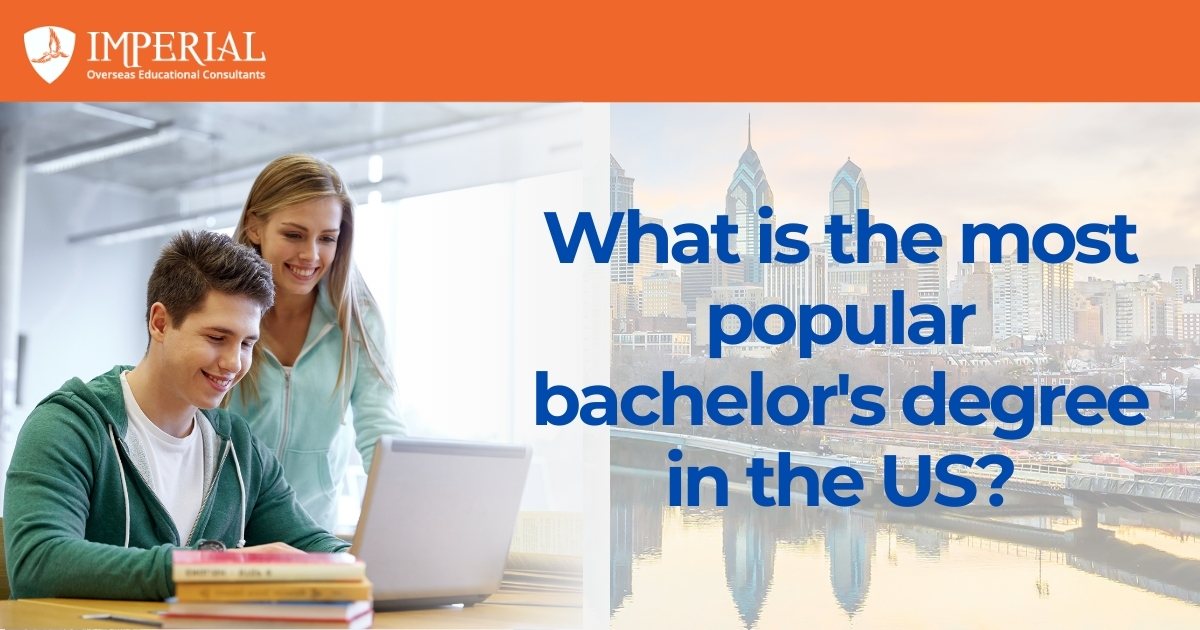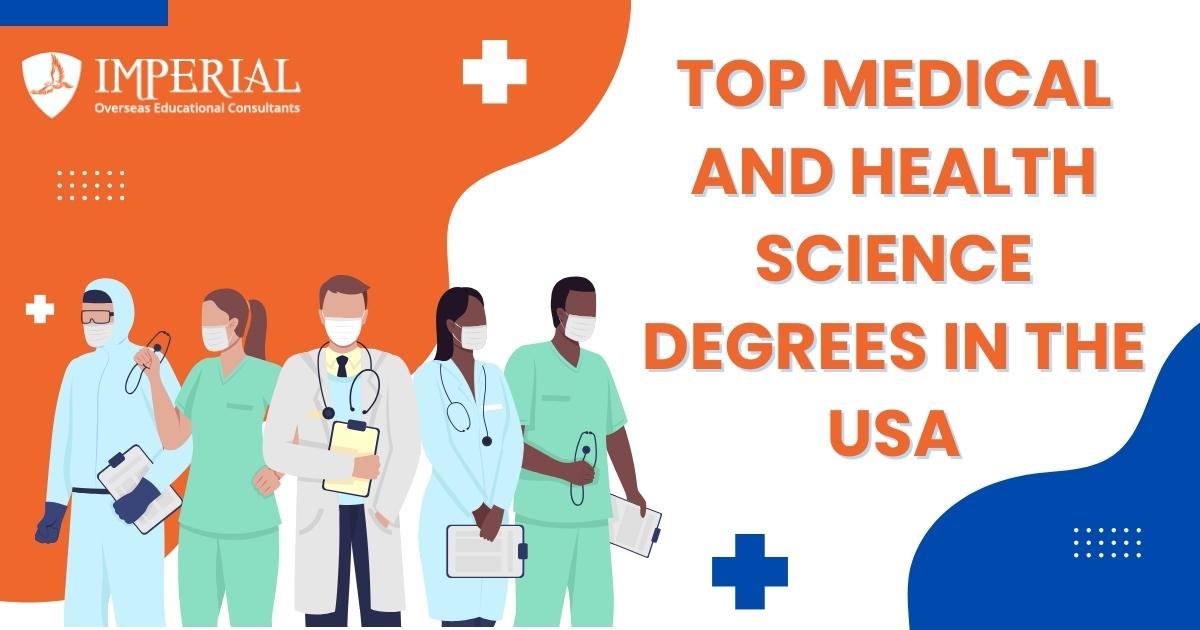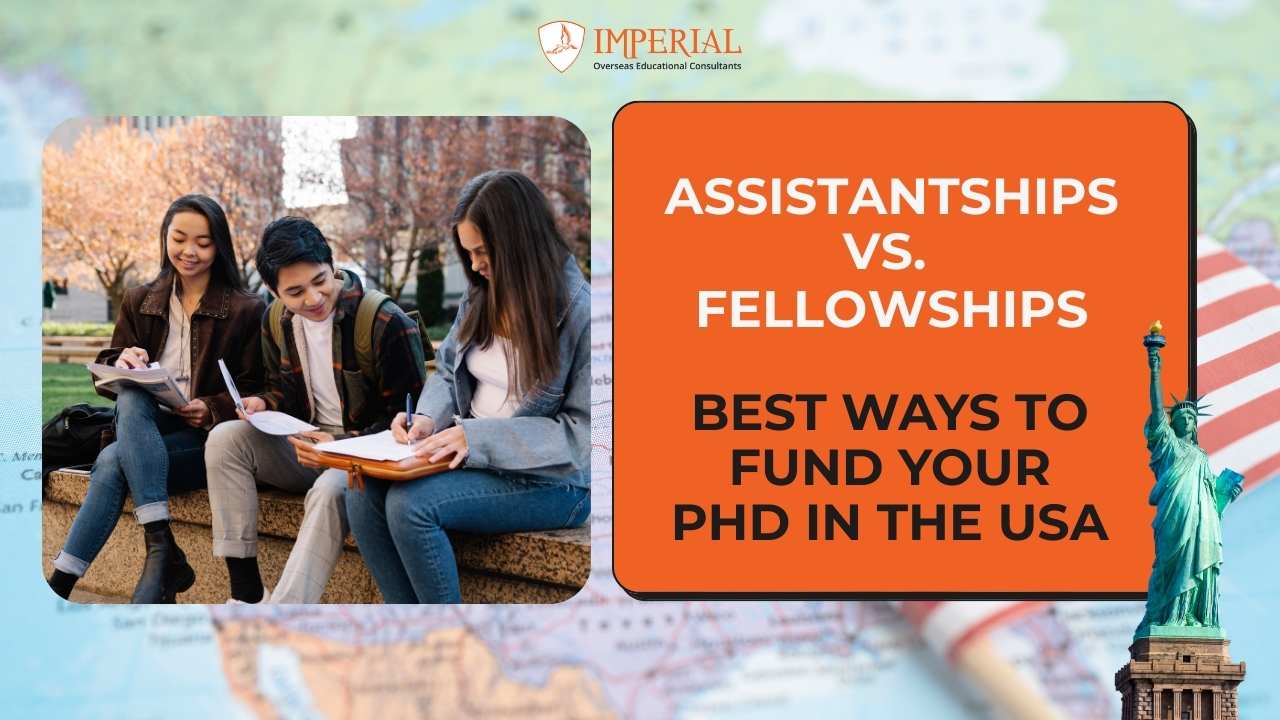
Navigating the US Visa Process for PhD Students
A PhD in USA is only accessible to students who are aware of the visa process. For India, there are two major areas of choice in F-1 and J-1 visa USA from India options, each suited to specific study needs, and this guide will accompany you through each stage—from choosing the right sort of visa to preparing to sit for interviews and remaining in good standing with a visa.
Key Details on F-1 Visa and J-1 Visa for PhD in USA and Their Forms
In the case of PhD students applying for F-1 or J-1 visa USA from India, it generally comes down to how their programs figure and how they have been financed. For students who have self-funding or institutional support, F-1 is favorable as it provides for up to 12 months of Optional Practical Training (OPT) with a further 24 months extension in STEM fields.
In contrast, the J-1 visa USA from India is frequently used by students in exchange programs or those who are sponsored with significant funding with a 2-year home residency obligation after the program ends.
- F-1 Visa: With no residency condition, works well with OPT.
- J-1 Visa USA from India: For students who are fully sponsored and may be necessary to return to India.
Obtaining the right visa is helpful in choosing academic and professional ways in order to efficiently plan for the future of the individual after the completion of the PhD program in USA.
Engaging with the Visa Interview
This visa interview evaluates your purpose of travel as well as your financial capabilities. In this sense, this step is also in line with your study and work aspirations for J-1 visa USA from India applicants.
How to Prepare for the Interview:
- Vision Statement of the university: Be prepared to explain your choice of program, your motivation for research, and your ambitions after graduation for your PhD in USA.
- Present Various Sources of Financial Guarantees: Have all documents in order proving such things as scholarship awards, bank balances, and sponsorships.
- Key Answer for all Questions: Be in a position to answer frequently asked questions, and this will make you more comfortable during the interview occasion for your PhD in USA.
Knowing how to interview in advance is quite beneficial as it creates a good mood for the entire process of obtaining the US student visa embassies and for future studies in the PhD in USA.
Funding Documentation for PhD in USA
For F-1 and J-1 visa USA from India, sufficient financial proof is required. While the former can rely on personal funds, scholarships, and on-campus jobs, the latter often requires an external sponsorship.
Accepted Financial Evidence:
- Bank Statements: Show sufficient funds to meet the tuition and living expenses for a PhD in USA.
- Scholarship letters: Mention the period covered and the scholarship amount.
- Sponsorship Documentation: Required for J-1 visa USA from India, confirming the commitment of the sponsor.
Providing clarity and transparency of financial proofs, it assures the immigration officers and helps in securing faster processing for a visa for PhD in USA.
Visa Status Compliance During Your PhD
When a student decides to pursue a PhD in USA, that student should maintain their visa status. This includes following the regulations for academics as well as employment. Compliance helps in preventing the disruption of academic advancement for PhD in USA students.
Important Areas of Compliance:
- Full-time Enrollment: Meet minimum credit requirements for each of the semesters for a PhD in USA.
- Timely Renewal: If the expected duration of the PhD in USA is more than the first I-20 or DS-2019 that was issued, then one must be renewed.
- Allowed Work: On-campus work can be done; for off-campus employment, approval should be obtained and the job should be relevant to the study field.
Adhering to these rules helps students to complete their educational processes while staying eligible for the J-1 visa USA from India.
Post-Study Transition: Work Visas and Residency Alternatives
One can seek several post-study work options after completing a PhD in the USA. F-1 students who have been issued this visa might be eligible for the OPT, whereas J-1 visa USA from India holders might apply for a waiver if they are subject to the home residency requirement in order to remain in the USA.
Visas Available After Completion of Study:
- F-1 Graduate OPT: This allows 12 months of work authorization with an extension of 24 months for STEM.
- H-1B visa: Graduates can find long-term employment through employer-sponsored visas.
- Green Card: Some graduates can pursue residency through employment-based green cards and national interest waivers.
When one settles on post-study options before time, it allows the smooth transition from academia to a career after completing a PhD in USA.
Ready to turn your PhD goals in the USA into reality? With Imperial Overseas Educatoin Consultants by your side, you’ll get personalized support tailored to each stage—from selecting the right visa to preparing a strong interview and handling post-study options. Let us take care of the details so you can focus fully on your academic and career path. Reach out today and start building your future with confidence.
Faqs
F-1 Visa has more potential and allows self-funding, OPT allows employment after the course, while a J-1 visa USA from India usually needs sponsorship and, in some cases, a 2-year home residency.
Start the application process 3 to 5 months before the program dates and this will help in making arrangements for documents, scheduling interviews, and incidences of processing delays for PhD in USA applicants.
J-1 visa USA from India students can work part-time on campus and seek off-campus employment authorization if it is related to their studies for PhD in USA.
You will have your I-20 or DS-2019, documentation, some evidence of finances, a receipt for the payment of the SEVIS fee, a passport, and letters from sponsors as appropriate for PhD in USA.



